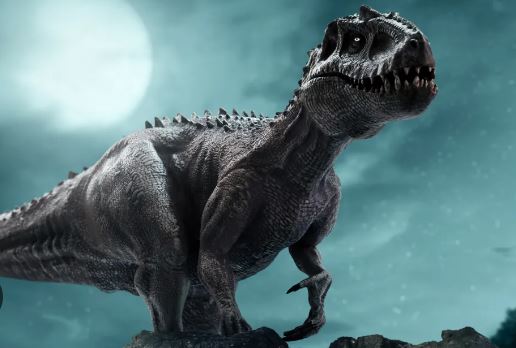Unraveling the Enigma of Tyrannosaurus Rex Intelligence
The Tyrannosaurus rex, a legendary predator of the Cretaceous period, has long captivated our imagination. But how intelligent was this apex predator? A contentious debate has erupted among neuroscientists regarding the cognitive capabilities of T. rex, fueled by conflicting estimates of its neuron count, a key indicator of brainpower.
Conflicting Neuron Counts Fuel Controversy
In 2023, neuroscientist Suzana Herculano-Houzel of Vanderbilt University made a groundbreaking claim, suggesting that T. rex possessed a staggering 3.3 billion neurons in its telencephalon, a region of the forebrain associated with sensory processing, cognition, and motor function. This estimate placed the dinosaur’s cognitive abilities on par with modern baboons, a revelation that sparked both excitement and skepticism within the scientific community.
However, a recent study published in the Anatomical Record challenges this assertion, proposing a more conservative estimate of 360 million neurons. This drastically lower figure aligns T. rex’s brainpower more closely with that of modern crocodiles than primates, reigniting the debate surrounding the dinosaur’s intelligence.
Methodological Discrepancies Underlie Divergent Estimates
The crux of the disagreement lies in the methodologies employed to estimate neuron density, a crucial factor in determining the total number of neurons in a brain. Neuron density varies significantly across species and is notoriously difficult to assess in fossilized remains. Researchers must rely on the neuron densities of modern relatives as proxies, leading to inherent uncertainties and potential biases.
Herculano-Houzel’s 2023 study utilized a comparative analysis of brain-to-body mass ratios across various dinosaur species, including ancient bird families. This led her to conclude that theropod brains, the group encompassing T. rex, were more akin to bird brains than those of other dinosaurs. Consequently, she employed the neuron densities of modern birds closely related to theropods to calculate T. rex’s neuron count.
Challenging Assumptions and Proposing Alternatives
Gutiérrez-Ibáñez and colleagues, in their 2024 study, argue that Herculano-Houzel’s approach is flawed. They contend that including a broader range of modern birds in the comparison reveals a closer alignment between T. rex and scaled reptiles in terms of brain-to-body mass ratios. Furthermore, they criticize the assumption that dinosaur brains filled the entire braincase, highlighting that T. rex’s brain likely occupied only 30-40% of its cranial cavity, similar to modern crocodiles.
By adjusting for these factors, Gutiérrez-Ibáñez’s team arrived at a substantially lower neuron count for T. rex, ranging from 245 million to 360 million. This revised estimate has rekindled the debate, prompting further scrutiny of the methodologies used to assess dinosaur intelligence.
The Ongoing Quest for Understanding
While the precise cognitive capabilities of T. rex remain elusive, the ongoing debate highlights the challenges and complexities inherent in reconstructing the brainpower of extinct animals. It underscores the need for rigorous scientific inquiry and the importance of considering multiple lines of evidence, including fossil anatomy, comparative neuroanatomy, and behavioral studies of extant relatives.
Key Learning Points
| Learning Point | Description |
|---|---|
| Conflicting Estimates | Scientists disagree on the neuron count of T. rex, leading to divergent conclusions about its intelligence. |
| Methodological Challenges | Estimating neuron density in fossilized brains poses significant challenges, leading to varying results. |
| Brain-to-Body Mass Ratio Comparison | Comparing brain-to-body mass ratios of T. rex with modern birds and reptiles yields conflicting interpretations. |
| Ongoing Debate | The debate over T. rex’s intelligence highlights the complexities of reconstructing the cognitive abilities of extinct animals. |

Basant Kumar Sahoo is a seasoned writer with extensive experience in crafting tech-related articles, insightful editorials, and engaging sports content. With a deep understanding of technology trends, a knack for thought-provoking commentary, and a passion for sports, Basant brings a unique blend of expertise and creativity to his writing. His work is known for its clarity, depth, and ability to connect with readers across diverse topics.



